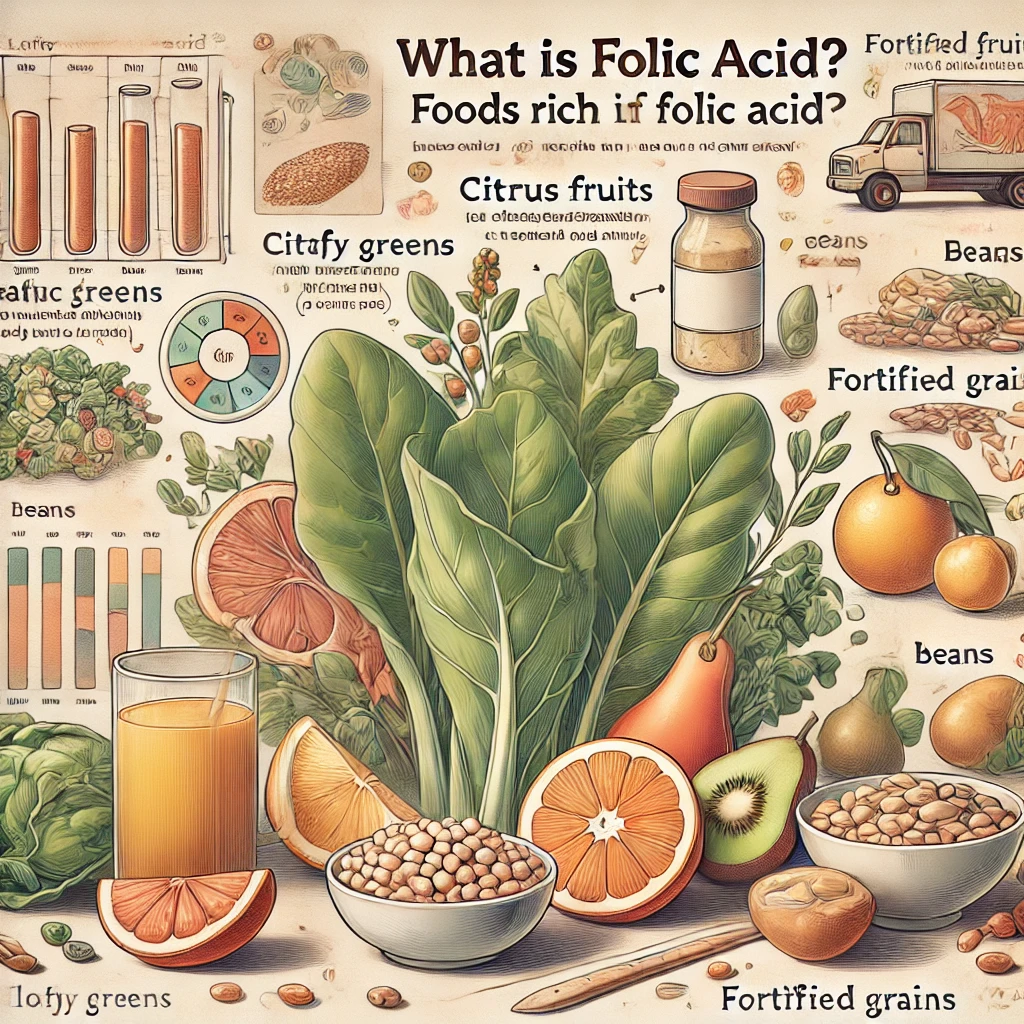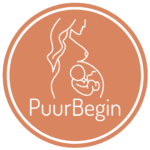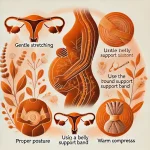Tijdens deze bijzondere periode zijn er tal van vragen en onzekerheden die op je afkomen. Een van de belangrijkste onderwerpen waar veel ouders-to-be mee te maken krijgen, is de noodzaak van foliumzuur. Waarom is het eigenlijk zo belangrijk om foliumzuur te slikken tijdens de zwangerschap? In dit artikel leggen we je op een heldere en toegankelijke manier uit wat foliumzuur is, waarom het essentieel is voor de ontwikkeling van je baby en hoe je ervoor zorgt dat je de juiste hoeveelheid binnenkrijgt. Laten we samen de eerste stap zetten naar een gezonde start voor jouw kleintje!
Wat is foliumzuur?

Foliumzuur is een synthetische vorm van vitamine B11, ook wel bekend als folaat. Deze essentiële vitamine speelt een cruciale rol in de synthese van DNA en RNA, welke beide essentieel zijn voor de celgroei en -deling. Tijdens de zwangerschap zijn deze processen van vitaal belang voor de ontwikkeling van jouw baby. Omdat je lichaam zelf niet genoeg van deze vitamine kan aanmaken, is suppletie vaak noodzakelijk. Bovendien helpt foliumzuur om het risico op neurale buisdefecten bij jouw baby te verlagen, zoals spina bifida.
Er zijn een aantal voordelen verbonden aan de inname van deze vitamine tijdens je zwangerschap:
-
- Gezonde hersenontwikkeling: Bevordert de groei en rijping van de hersenen en het zenuwstelsel van de baby.
-
- Preventie van geboorteafwijkingen: Vermindert het risico op ernstige aangeboren afwijkingen zoals hazenlip en hartafwijkingen.
-
- Steun aan de aanmaak van rode bloedcellen: Helpt bij de productie van voldoende rode bloedcellen en voorkomt bloedarmoede bij de moeder.
Om je een beter overzicht te geven, hebben we een kleine tabel gemaakt met de aanbevolen dagelijkse hoeveelheid foliumzuur:
| Aanbevolen dosis | Voor zwangere vrouwen |
|---|---|
| Voor Conceptie | 400 mcg/dag |
| Tijdens de Zwangerschap | 500 mcg/dag |
Waar zit foliumzuur in?

Foliumzuur is een essentiële vitamine die je lichaam nodig heeft voor onder andere de groei en ontwikkeling van je baby. Het is van nature te vinden in verschillende voedingsmiddelen. Groene bladgroenten, zoals spinazie en boerenkool, bevatten een hoge concentratie foliumzuur. Ook citrusvruchten zoals sinaasappels en citroenen zijn goede bronnen. Wanneer je deze voedingsmiddelen dagelijks in je dieet opneemt, zorg je ervoor dat je voldoende foliumzuur binnenkrijgt.
Wil je graag meer variatie in je voeding? Probeer dan de volgende opties:
-
- Volkorenproducten: Volkorenbrood en -pasta’s zijn rijk aan voedingsstoffen.
-
- Peulvruchten: Bonen, linzen en kikkererwten bevatten ook een behoorlijke hoeveelheid foliumzuur.
-
- Noten en zaden: Bijvoorbeeld zonnebloempitten en amandelen.
Hieronder vind je een handig overzicht van voedingsmiddelen en hun foliumzuurgehalte:
| Voedingsmiddel | Foliumzuur (mcg per 100g) |
|---|---|
| Spinazie | 194 |
| Boerenkool | 141 |
| Linzen | 181 |
| Avocado | 81 |
Extra foliumzuur tijdens je zwangerschap
Tijdens de zwangerschap is extra foliumzuur essentieel voor een gezonde ontwikkeling van je baby. Dit belangrijke B-vitamine helpt bij het vormen van de neurale buis, die zich uiteindelijk ontwikkelt tot de hersenen en het ruggenmerg van je baby. Door dagelijks foliumzuur te slikken, verklein je het risico op neurale buisdefecten, zoals spina bifida, aanzienlijk.
Er zijn verschillende redenen waarom foliumzuur suppletie wordt aanbevolen tijdens je zwangerschap:
-
- Voorkomt aangeboren afwijkingen: Foliumzuur speelt een cruciale rol in het voorkomen van ernstige geboorteafwijkingen.
-
- Ondersteunt de groei: Het bevordert de groei en de ontwikkeling van je baby in de allervroegste fase.
-
- Versterkt je immuunsysteem: Het helpt jouw lichaam sterker te maken tijdens deze bijzondere periode.
Raadpleeg altijd je verloskundige voor het juiste advies over dosering en gebruik. Bij Verloskundigen PuurBegin staan we altijd klaar om je te helpen met persoonlijk advies en begeleiding.
Wanneer starten en stoppen met foliumzuur?
Foliumzuur is een essentieel supplement dat je helpt om je baby gezond te laten groeien. Begin direct zodra je van plan bent om zwanger te worden, het liefst vanaf minstens vier weken voor de conceptie. Dit geeft je lichaam voldoende tijd om een goede voorraad foliumzuur op te bouwen. Het is bijzonder belangrijk tijdens het eerste trimester van je zwangerschap, omdat dit een cruciale periode is voor de ontwikkeling van de neurale buis van je baby, die uiteindelijk de hersenen en het ruggenmerg wordt.
Stoppen met foliumzuur slikken doe je meestal vanaf de tiende week van je zwangerschap. Waarom? Dan is de neurale buis van je baby volledig gesloten en de belangrijkste ontwikkeling waarvoor foliumzuur essentieel is, is voltooid. Echter, blijf je toch liever gedurende de zwangerschap een multivitamine nemen die foliumzuur bevat, dan is dat geen probleem.
Wat kan er gebeuren als je een tekort hebt?
Een gebrek aan foliumzuur tijdens de zwangerschap kan ernstige gevolgen hebben voor zowel de moeder als het kind. Een van de grootste risico’s is de ontwikkeling van neurale buisdefecten bij de baby, zoals spina bifida, waarbij de wervelkolom van de baby niet goed sluit. Bovendien kan een tekort aan deze essentiële vitamine leiden tot vroeggeboorten, een laag geboortegewicht en zelfs miskramen. Moeders kunnen ook symptomen zoals vermoeidheid, duizeligheid en prikkelbaarheid ervaren.
-
- Neurale buisdefecten: Onjuiste sluiting van de ruggenwervel van de baby.
-
- Vroeggeboorte: Het risico op een bevalling vóór de 37e week.
-
- Laag geboortegewicht: Baby’s geboren met een gewicht lager dan 2500 gram.
Bovendien blijkt uit onderzoeken dat een tekort aan foliumzuur zelfs kan bijdragen aan de ontwikkeling van autisme spectra stoornissen. Dit maakt het slikken van foliumzuursupplementen vanaf het begin van de zwangerschap cruciaal. Vergeet echter niet dat het altijd handig is om een gezonde en gebalanceerde voeding aan te houden, rijk aan groene bladgroenten, citrusvruchten en volkorenproducten. Hier is een kleine tabel met aanbevelingen:
| Voedingsmiddel | Foliumzuurgehalte |
|---|---|
| Spinazie | 194 mcg per kop |
| Broccoli | 104 mcg per kop |
| Sinaasappelsap | 74 mcg per kop |
Hoeveel extra foliumzuur heb je nodig?
Het is niet alleen belangrijk om foliumzuur te slikken, maar ook om de juiste hoeveelheid te krijgen. Volgorde is hierin cruciaal! Tijdens je zwangerschap heb je namelijk meer foliumzuur nodig dan anders. De aanbevolen hoeveelheid is 400 tot 500 microgram (mcg) per dag.
Het is echter niet alleen een kwestie van hoeveelheden. Ook de timing is essentieel. Idealiter begin je vier weken voor de bevruchting met de inname van foliumzuur en ga je hier minimaal door tot de tiende week van je zwangerschap. Dit zorgt ervoor dat je baby voldoende foliumzuur krijgt om neurale buisdefecten, zoals spina bifida, te voorkomen. Hier is een korte lijst met voordelen van foliumzuur tijdens de zwangerschap:
-
- Ondersteunt de ontwikkeling van de hersenen en het ruggenmerg van je baby.
-
- Vermindert het risico op geboorteafwijkingen.
-
- Helpt bij de aanmaak van rode bloedcellen.
Hieronder een snel overzicht:
| Aanbevolen foliumzuurinnames | Hoeveelheden (mcg) |
|---|---|
| Standaard Zwangerschap | 400-500 mcg |
| Neuraal buisdefect in voorgeschiedenis of bij paren waarvan een van de ouders zelf een neuralebuisdefect heeft | 5 mg |
6 belangrijke stappen in foliumzuur slikken
Het nemen van foliumzuur tijdens je zwangerschap kan een groot verschil maken voor de gezondheid van je baby. Bij Verloskundigen PuurBegin adviseren we altijd een aantal belangrijke stappen om ervoor te zorgen dat je deze vitamines op de beste manier inneemt. Volg je deze stappen, dan geef je je kleintje meteen een goede start.
Stap 1: Begin vroeg
Start het slikken van foliumzuur vóór je zwanger bent, als je dit plant. De meeste vrouwen beginnen echter zodra ze weten dat ze zwanger zijn. Foliumzuur helpt aangeboren afwijkingen zoals een open ruggetje te voorkomen.
Stap 2: De juiste dosering
Neem de aanbevolen dagelijkse hoeveelheid van 400 microgram. Overleg altijd met je verloskundige of huisarts voor de juiste dosering.
Stap 3: Combineer met voeding
Voedingsstoffen worden vaak beter opgenomen in combinatie met de juiste voeding. Eet meer donkergroene bladgroenten, volkoren producten en citrusvruchten.
Stap 4: Regelmaat
Neem je foliumzuur elke dag op hetzelfde moment. Regelmaat zorgt ervoor dat je het niet vergeet.
Stap 5: Bewaar goed
Zorg dat je je vitamines op een droge, koele plek bewaart. Hitte en licht kunnen de effectiviteit van foliumzuur verminderen.
Stap 6: Volg professioneel advies
Raadpleeg altijd je verloskundige om te checken of je de juiste supplementen neemt. Soms worden er extra vitamines aangeraden afhankelijk van je persoonlijke gezondheidssituatie.
| Stap | Actie |
|---|---|
| Begin vroeg | Start vóór je zwanger bent of meteen als je weet dat je zwanger bent |
| Juiste dosering | 400 microgram per dag |
| Combineer met voeding | Voeg donkergroene groenten, volkoren producten en citrus toe |
| Regelmaat | Neem het dagelijks op hetzelfde tijdstip |
| Bewaar goed | Bewaar op een droge, koele plek |
| Professioneel advies | Raadpleeg je verloskundige |
Foliumzuur kopen
Bij Verloskundigen PuurBegin raden we aan om tijdens je zwangerschap foliumzuur te slikken. Het is namelijk onmisbaar voor de ontwikkeling van de hersenen en het ruggenmerg van je baby. Hierdoor verklein je de kans op aangeboren afwijkingen zoals een open ruggetje of hazenlip aanzienlijk. Foliumzuur ondersteunt bovendien een gezonde groei en ontwikkeling van de placenta, wat essentieel is voor de voeding van je kleintje.
Sommige voedingsmiddelen bevatten van nature foliumzuur, zoals groene bladgroenten en volkorenproducten. Echter, vaak is dit niet voldoende. Daarom is het slikken van een supplement absoluut aanbevolen. Overweeg de volgende voordelen:
-
- Gemoedsrust: Je weet zeker dat je de juiste hoeveelheid binnenkrijgt.
-
- Bescherming: Het ondersteunt zowel jouw gezondheid als die van je baby.
-
- Eenvoud: Een tablet per dag is vaak al genoeg.
| Supplement | Hoeveelheid | Waarom |
|---|---|---|
| Foliumzuur | 400 mcg | Essentieel voor ontwikkeling |
| IJzer | 30 mg | Voorkomt bloedarmoede |
| Calcium | 1000 mg | Botopbouw |
Conclusie
En zo zie je maar, dames. Het nemen van foliumzuur tijdens je zwangerschap is geen overbodige luxe, maar een noodzakelijke stap voor de gezonde ontwikkeling van jouw kindje. Bij Verloskundigen PuurBegin willen we ervoor zorgen dat jouw zwangerschap zo soepel en fijn mogelijk verloopt. Dus twijfel niet en zorg dat je deze essentiële vitamine op tijd binnenkrijgt. Heb je nog vragen of wil je meer advies op maat? Neem gerust contact met ons op, we staan altijd voor je klaar!
Blijf op de hoogte!
Volg ons op social media voor het laatste nieuws en een kijkje achter de schermen bij Verloskundigen PuurBegin in Kampen.
Ontdek de dagelijkse avonturen van onze verloskundigen, waardevolle tips voor aanstaande ouders en inspirerende verhalen uit de praktijk.
Klik op de onderstaande knoppen en blijf verbonden met ons hartverwarmende team!
 |
 |
Hartelijke groet,
Verloskundigen PuurBegin
Adres: Orkestlaan 148, 8265RC Kampen
Telefoon: 085 40 19 095








